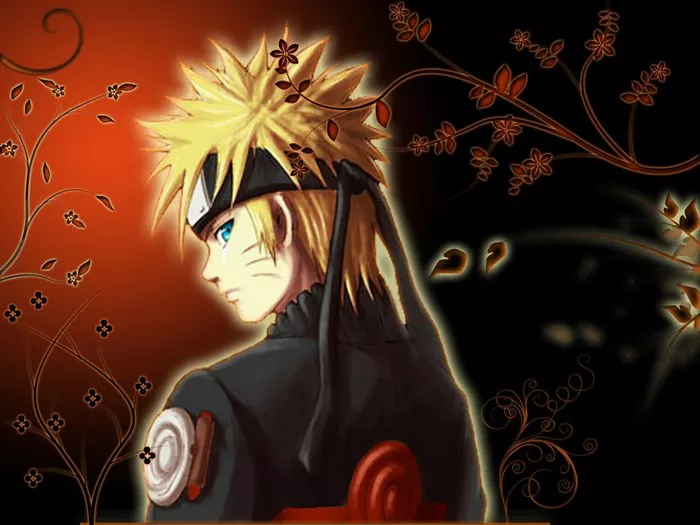Naruto,” created by Masashi Kishimoto, is one of the most beloved and iconic anime and manga series of all time. The story follows Naruto Uzumaki, a young ninja with dreams of becoming the strongest ninja and leader of his village, known as the Hokage. Throughout the series, Naruto faces numerous challenges, overcomes adversity, and forms deep bonds with his friends and allies. One topic that has garnered attention within the “Naruto” fan community is the question of whether Naruto Uzumaki exhibits traits consistent with autism spectrum disorder (ASD). In this article, we will explore the representation of neurodiversity in anime, examine characteristics of autism as portrayed in media, and analyze whether Naruto Uzumaki’s behavior aligns with autistic traits.
Understanding Autism Spectrum Disorder
What is Autism Spectrum Disorder?
Autism spectrum disorder (ASD) is a neurodevelopmental condition characterized by differences in social communication and interaction, as well as restricted interests and repetitive behaviors. Individuals with autism may exhibit a wide range of strengths and challenges, leading to a diverse spectrum of experiences and abilities.
Common Characteristics of Autism
Some common characteristics associated with autism include:
Social Communication Challenges: Difficulty with verbal and nonverbal communication, such as maintaining eye contact, understanding social cues, and engaging in reciprocal conversation.
Restricted Interests and Repetitive Behaviors: Intense focus on specific topics or activities, repetitive movements or behaviors (e.g., hand-flapping, rocking), and adherence to routines or rituals.
Sensory Sensitivities: Heightened sensitivity or hypo-reactivity to sensory stimuli, such as lights, sounds, textures, or smells.
Representation of Neurodiversity in Anime
Diverse Characters and Themes
Anime, like other forms of media, has the power to reflect and explore diverse experiences, including neurodiversity. While representation of neurodiverse characters in anime may vary, some series have depicted characters with traits consistent with autism or other neurodevelopmental conditions.
Positive Portrayals and Challenges
Positive portrayals of neurodiverse characters in anime can help increase understanding, empathy, and acceptance of individuals with autism and other neurodevelopmental differences. However, it is essential to recognize that not all representations are accurate or respectful, and some may perpetuate harmful stereotypes or misconceptions.
Analyzing Naruto Uzumaki’s Behavior
Strengths and Challenges
Throughout the “Naruto” series, Naruto Uzumaki exhibits a range of traits, strengths, and challenges that have led some fans to speculate about the possibility of him being autistic. Let’s explore some of these characteristics:
Social Communication:
Challenges: Naruto often struggles with social interactions and understanding social cues. He can be impulsive, blunt, and oblivious to others’ feelings, which may lead to misunderstandings and conflicts.
Strengths: Despite his social challenges, Naruto forms deep bonds with his friends and allies, demonstrating loyalty, empathy, and compassion. He is fiercely protective of those he cares about and shows genuine concern for their well-being.
Restricted Interests and Repetitive Behaviors:
Obsession with Becoming Hokage: Naruto’s ultimate goal of becoming the Hokage, the leader of his village, could be interpreted as a restricted interest or obsession. He is singularly focused on achieving this goal and is willing to work tirelessly to make it a reality.
Shadow Clone Technique: Naruto’s frequent use of the Shadow Clone Technique, a jutsu that creates multiple copies of himself, could be seen as a repetitive behavior. He relies on this technique in various situations, often as a means of training or combat strategy.
Sensory Sensitivities:
Physical Stamina and Endurance: Naruto demonstrates remarkable physical stamina and endurance throughout the series, enduring intense physical training, battles, and missions without showing signs of fatigue or discomfort.
Hyperfocus and Determination: When Naruto is passionate about something, such as mastering a new jutsu or protecting his friends, he exhibits intense focus and determination, sometimes to the point of disregarding his own well-being.
Perspectives from Fans and Critics
Diverse Interpretations
The question of whether Naruto Uzumaki is autistic has sparked diverse interpretations and discussions within the “Naruto” fan community. Some fans resonate with Naruto’s struggles and see themselves reflected in his character, while others view his behavior through different lenses, such as cultural or narrative contexts.
Critiques of Pathologizing Characters
Critics of the notion that Naruto is autistic caution against pathologizing characters based on surface-level traits or behaviors. They argue that assigning diagnostic labels to fictional characters can oversimplify complex personalities and experiences, reinforcing stereotypes and overlooking the multifaceted nature of human behavior.
Conclusion
The question of whether Naruto Uzumaki is autistic remains a topic of speculation and interpretation within the “Naruto” fan community. While Naruto exhibits some traits that align with characteristics of autism spectrum disorder, such as social communication challenges and intense focus on specific goals, it is essential to approach such discussions with nuance, empathy, and respect for diverse perspectives.

